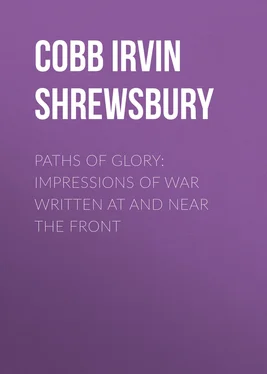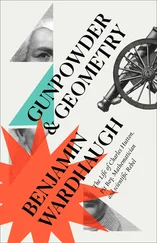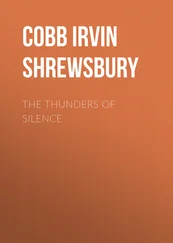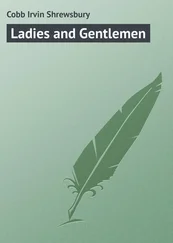Irvin Cobb - Paths of Glory - Impressions of War Written at and Near the Front
Здесь есть возможность читать онлайн «Irvin Cobb - Paths of Glory - Impressions of War Written at and Near the Front» — ознакомительный отрывок электронной книги совершенно бесплатно, а после прочтения отрывка купить полную версию. В некоторых случаях можно слушать аудио, скачать через торрент в формате fb2 и присутствует краткое содержание. Жанр: prose_military, История, foreign_edu, foreign_antique, foreign_prose, на английском языке. Описание произведения, (предисловие) а так же отзывы посетителей доступны на портале библиотеки ЛибКат.
- Название:Paths of Glory: Impressions of War Written at and Near the Front
- Автор:
- Жанр:
- Год:неизвестен
- ISBN:нет данных
- Рейтинг книги:3 / 5. Голосов: 1
-
Избранное:Добавить в избранное
- Отзывы:
-
Ваша оценка:
- 60
- 1
- 2
- 3
- 4
- 5
Paths of Glory: Impressions of War Written at and Near the Front: краткое содержание, описание и аннотация
Предлагаем к чтению аннотацию, описание, краткое содержание или предисловие (зависит от того, что написал сам автор книги «Paths of Glory: Impressions of War Written at and Near the Front»). Если вы не нашли необходимую информацию о книге — напишите в комментариях, мы постараемся отыскать её.
Paths of Glory: Impressions of War Written at and Near the Front — читать онлайн ознакомительный отрывок
Ниже представлен текст книги, разбитый по страницам. Система сохранения места последней прочитанной страницы, позволяет с удобством читать онлайн бесплатно книгу «Paths of Glory: Impressions of War Written at and Near the Front», без необходимости каждый раз заново искать на чём Вы остановились. Поставьте закладку, и сможете в любой момент перейти на страницу, на которой закончили чтение.
Интервал:
Закладка:
We had thanked the young lieutenant and had bade him good-by, and were starting off again, hoping to make Maubeuge before night, when suddenly it struck me that the one thing about La Buissière I should recall most vividly was not the sight of it, all stricken and stunned and forlorn as it was, but the stench of it.
Before this my eyes had been so busy recording impressions that my nose had neglected its duty; now for the first time I sensed the vile reek that arose from all about me. The place was one big, horrid stink. It smelled of ether and iodoform and carbolic acid—there being any number of improvised hospitals, full of wounded, in sight; it smelled of sour beef bones and stale bread and moldy hay and fresh horse dung; it smelled of the sweaty bodies of the soldiers; it smelled of everything that is fetid and rancid and unsavory and unwholesome.
And yet, forty-eight hours before, this town, if it was like every other Belgian town, must have been as clean as clean could be. When the Belgian peasant housewife has cleaned the inside of her house she issues forth with bucket and scrubbing brush and washes the outside of it—and even the pavement in front and the cobbles of the road. But the war had come to La Buissière and turned it upside down.
A war wastes towns, it seems, even more visibly than it wastes nations. Already the streets were ankle-deep in filth. There were broken lamps and broken bottles and broken windowpanes everywhere, and one could not step without an accompaniment of crunching glass from underfoot.
Sacks of provender, which the French had abandoned, were split open and their contents wasted in the mire while the inhabitants went hungry. The lower floors of the houses were bedded in straw where the soldiers had slept, and the straw was thickly covered with dried mud and already gave off a sour-sickish odor. Over everything was the lime dust from the powdered walls and plastering.
We drove away, then, over the hill toward the south. From the crest of the bluff we could look down on ruined La Buissière, with its garrison of victorious invaders, its frightened townspeople, and its houses full of maimed and crippled soldiers of both sides.
Beyond we could see the fields, where the crops, already overripe, must surely waste for lack of men and teams to harvest them; and on the edge of one field we marked where the three peasants dug the grave for the rotting horse, striving to get it underground before it set up a plague.
Except for them, busy with pick and spade, no living creature in sight was at work.
Sherman said it!
Chapter 4
"Marsch, Marsch, Marsch, So Geh'n Wir Weiter!"
Have you ever seen three hundred thousand men and one hundred thousand horses moving in one compact, marvelous unit of organization, discipline and system? If you have not seen it you cannot imagine what it is like. If you have seen it you cannot tell what it is like. In one case the conceptive faculty fails you; in the other the descriptive. I, who have seen this sight, am not foolish enough to undertake to put it down with pencil on paper. I think I know something of the limitations of the written English language. What I do mean to try to do in this chapter is to record some of my impressions as I watched it.
In beginning this job I find myself casting about for comparisons to set up against the vision of a full German army of seven army corps on the march. I think of the tales I have read and the stories I have heard of other great armies: Alaric's war bands and Attila's; the First Crusade; Hannibal's cohorts, and Alexander's host, and Caesar's legions; the Goths and the Vandals; the million of Xerxes—if it was a million—and Napoleon starting for Moscow.
It is of no use. This Germanic horde, which I saw pouring down across Belgium, bound for France, does not in retrospect seem to me a man-made, man-managed thing. It seems more like a great, orderly function of Nature; as ordained and cosmic as the tides of the sea or the sweep of a mighty wind. It is hard to believe that it was ever fashioned of thousands of separate atoms, so perfectly is it welded into a whole. It is harder still to accept it as a mutable and a mortal organism, subject to the shifts of chance and mischance.
And then, on top of this, when one stops to remember that this army of three hundred thousand men and a hundred thousand horses was merely one single cog of the German military machine; that if all the German war strength were assembled together you might add this army to the greater army and hardly know it was there—why, then, the brain refuses to wrestle with a computation so gigantic. The imagination just naturally bogs down and quits.
I have already set forth in some detail how it came to pass that we went forth from Brussels in a taxicab looking for the war; and how in the outskirts of Louvain we found it, and very shortly thereafter also found that we were cut off from our return and incidentally had lost not only our chauffeur and our taxi-cab but our overcoats as well. There being nothing else to do we made ourselves comfortable along side the Belgian Lion Cafe in the southern edge of Louvain, and for hours we watched the advance guard sliding down the road through a fog of white dust.
Each time a break came in the weaving gray lines we fancied this surely was all. All? What we saw there was a puny dribbling stream compared with the torrent that was coming. The crest of that living tidal wave was still two days and many miles to the rearward. We had seen the head and a little of the neck. The swollen body of the myriad-legged gray centipede was as yet far behind.
As we sat in chairs tilted against the wall and watched, we witnessed an interesting little side play. At the first coming of the German skirmishers the people of this quarter of the town had seemed stupefied with amazement and astonishment. Most of them, it subsequently developed, had believed right up to the last minute that the forts of Liege still held out and that the Germans had not yet passed the gateways of their country, many kilometers to the eastward. When the scouts of the enemy appeared in their streets they fell for the moment into a stunned state. A little later the appearance of a troop of Uhlans had revived their resentment. We had heard that quick hiss and snarl of hatred which sprang from them as the lancers trotted into view on their superb mounts out of the mouth of a neighboring lane, and had seen how instantaneously the dull, malignant gleam of gun metal, as a sergeant pulled his pistol on them, had brought the silence of frightened respect again.
It now appeared that realization of the number of the invaders was breeding in the Belgians a placating spirit. If a soldier fell out of line at the door of a house to ask for water, all within that house strove to bring the water to him. If an officer, returning from a small sortie into other streets, checked up to ask the way to rejoin his command, a dozen eager arms waved in chorus to point out the proper direction, and a babble of solicitous voices arose from the group about his halted horse.
Young Belgian girls began smiling at soldiers swinging by and the soldiers grinned back and waved their arms. You might almost have thought the troops were Allies passing through a friendly community. This phase of the plastic Flemish temperament made us marvel. When I was told, a fortnight afterward, how these same people rose in the night to strike at these their enemies, and how, so doing, they brought about the ruination of their city and the summary executions of some hundreds of themselves, I marveled all the more.
Presently, as we sat there, we heard—above the rumbling of cannon wheels, the nimble clunking of hurrying hoofs and the heavy thudding of booted feet, falling and rising all in unison—a new note from overhead, a combination of whir and flutter and whine. We looked aloft. Directly above the troops, flying as straight for Brussels as a homing bee for the hive, went a military monoplane, serving as courier and spy for the crawling columns below it. Directly, having gone far ahead, it came speeding back, along a lower air lane and performed a series of circling and darting gyrations, which doubtlessly had a signal-code meaning for the troops. Twice or three times it swung directly above our heads, and at the height at which it now evoluted we could plainly distinguish the downward curve of its wing-planes and the peculiar droop of the rudder —both things that marked it for an army model. We could also make out the black cross painted on its belly as a further distinguishing mark.
Читать дальшеИнтервал:
Закладка:
Похожие книги на «Paths of Glory: Impressions of War Written at and Near the Front»
Представляем Вашему вниманию похожие книги на «Paths of Glory: Impressions of War Written at and Near the Front» списком для выбора. Мы отобрали схожую по названию и смыслу литературу в надежде предоставить читателям больше вариантов отыскать новые, интересные, ещё непрочитанные произведения.
Обсуждение, отзывы о книге «Paths of Glory: Impressions of War Written at and Near the Front» и просто собственные мнения читателей. Оставьте ваши комментарии, напишите, что Вы думаете о произведении, его смысле или главных героях. Укажите что конкретно понравилось, а что нет, и почему Вы так считаете.












